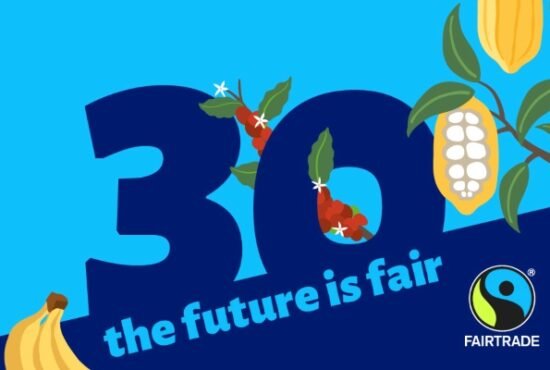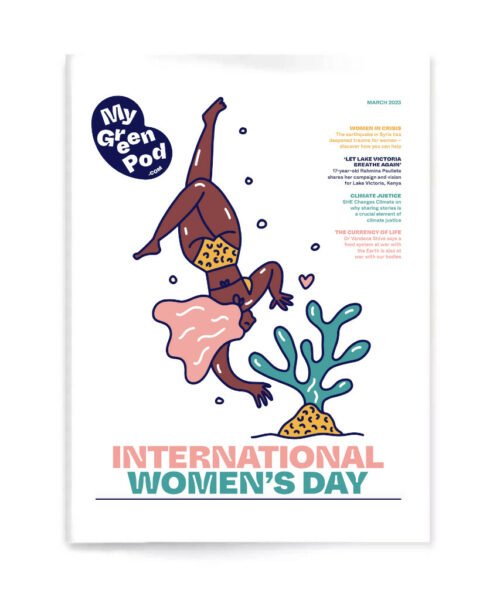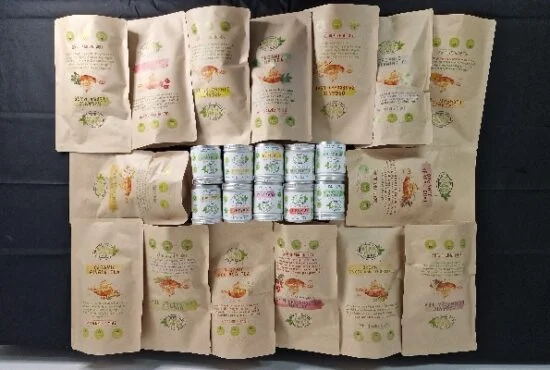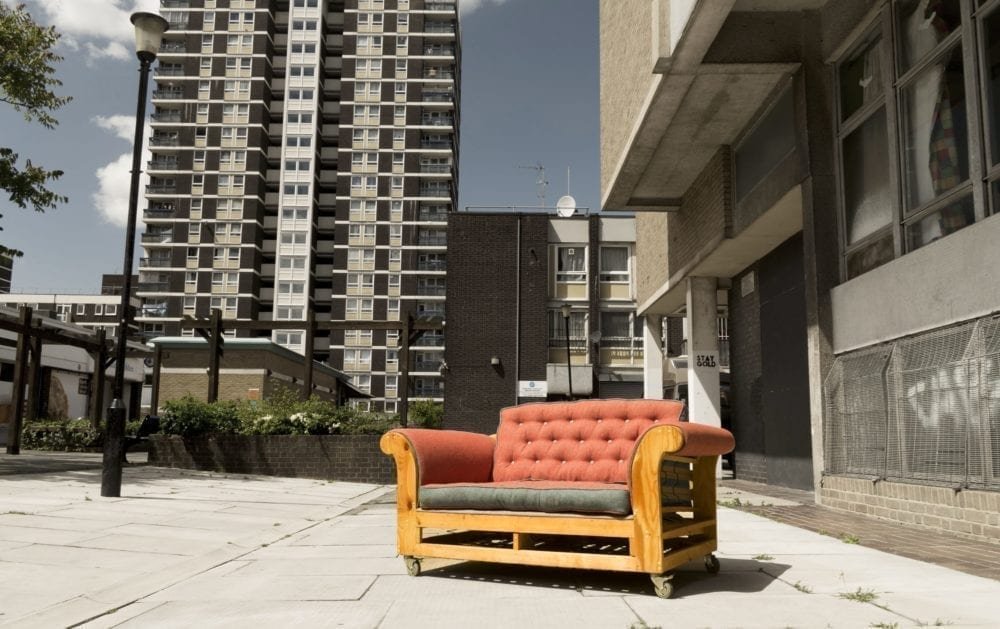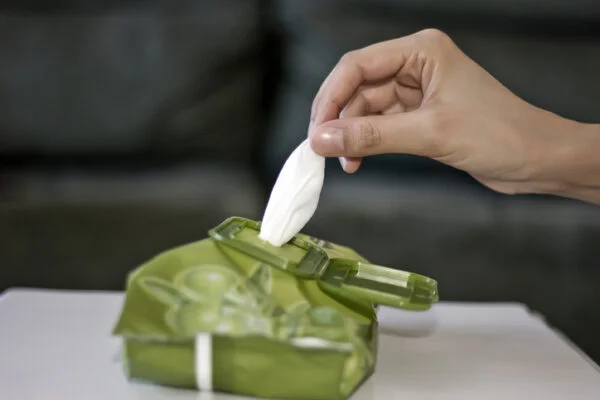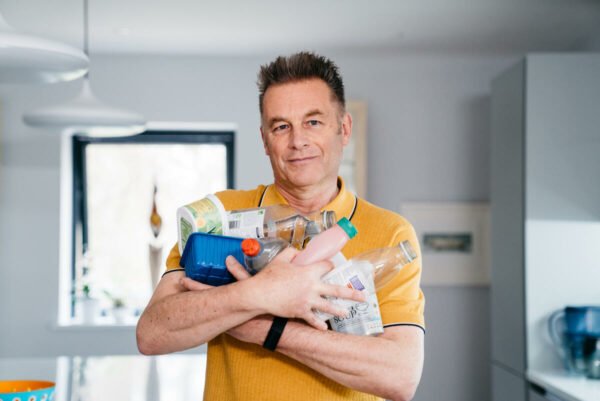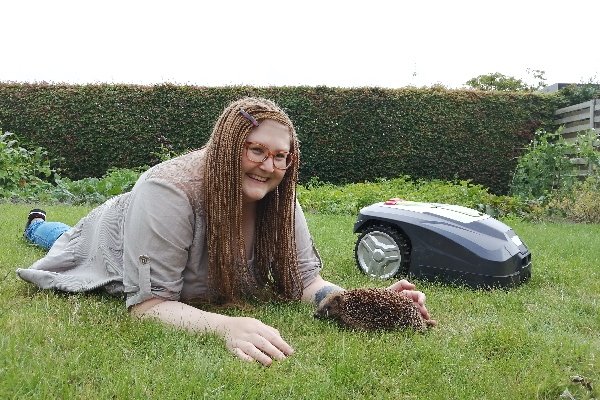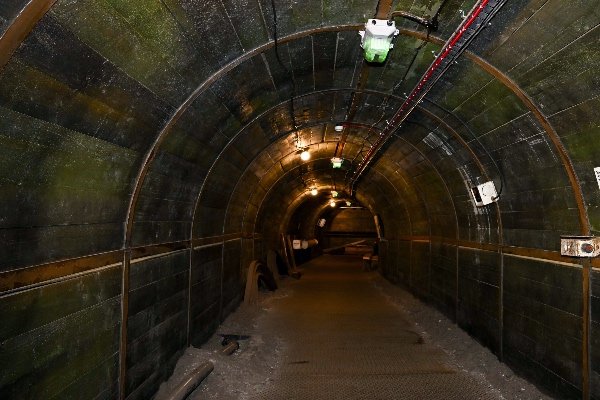A simple change to the way fire labels are stitched or stamped on to furniture could slash the numbers of sofas and chairs that end up in landfill sites across the UK, according to a report by the RSA think tank and SUEZ.
Use it or share it – how reuse could drive the shift to a circular economy
Keep the fire label!
RSA design researchers discovered that each year, reuse and recycling companies are forced to send thousands of tonnes of sofas to landfill sites because ‘annoying’ or ‘unsightly’ regulation fire labels have been cut off by the previous owner. This means they can’t be given a new home.
The report, Rearranging the Furniture, states that over 80% of the environmental impact of products we use every day is built in at the concept design stage, and that furniture manufacturers should learn from reuse and recycling companies in order to improve the end-of-life implications of their designs.
‘The biggest disappointment I face on a daily basis is the volume of upholstered furniture disposed of simply because it lacks a fire safety label. If these were attached in a more permanent, less obtrusive manner having due regard to the furniture being displayed in prime position in any number of homes, I estimate the disposal rate could be halved.
‘Currently, the reuse sector faces a colossal amount of wasted product which could make a priceless difference to the quality of life of the less advantaged in our society.’
Adrian Collins, Project Manager, Kingston Community Furniture
The Great Recovery Project
Published by the RSA’s Great Recovery Project http://www.greatrecovery.org.uk, the report reveals that every year in the UK we throw out around 1,600,000 tonnes of so-called ‘bulky waste’ – large items that are too large to fit into a standard dustbin.
The report concludes that more than half of this could be reused – reducing poverty by helping households in need access furniture, white goods and other household items.
While the UK now recycles 42% of the 200 million tonnes of waste it generates each year, the emphasis on recycling doesn’t put enough focus on the potential for increased resource efficiency through reusing old products, the report said.
1/2 all ‘bulky waste’ reusable
According to figures released by WRAP, approximately 42% of bulky waste is furniture, with the rest mostly comprising textile (19% including mattresses) and electrical or electronic (19%) waste.
32% of bulky waste is reusable in its current state – and the figure rises to 51% if we take into account items requiring slight repair.
‘One man’s waste is another’s gold, and as we saw time and again it is people’s perceptions about what is or isn’t waste that effectively determines the fate of an object. Items that are no longer wanted by one person will still hold value for others so re-selling should be made as easy as possible.
‘By increasing rates of reuse not only can we reduce the quantity of bulky items going to landfill and incineration, we can also increase social value by boosting employment and providing affordable essentials like sofas to those on low incomes.’
Lucy Chamberlin, Head of Programme at The Great Recovery
 Play Video about This Rock Might Just Save The World
Play Video about This Rock Might Just Save The World Play Video about Play 2 hours of rock
Play Video about Play 2 hours of rock Play Video about Play 2 hours of brook
Play Video about Play 2 hours of brook Play Video about Play 2 hours of sheep
Play Video about Play 2 hours of sheep
